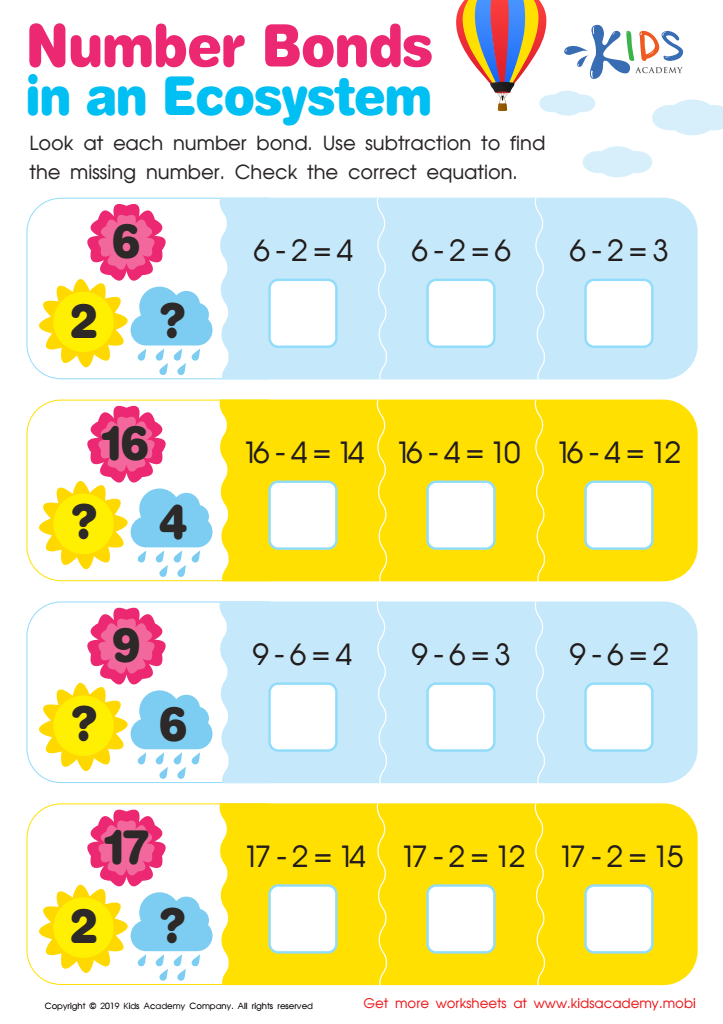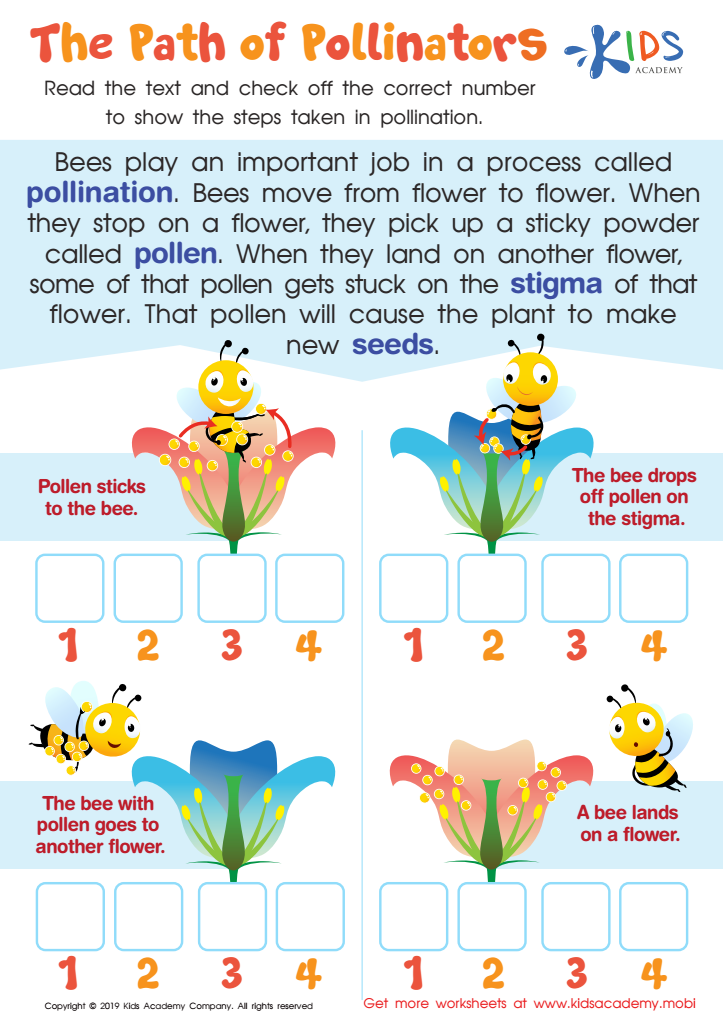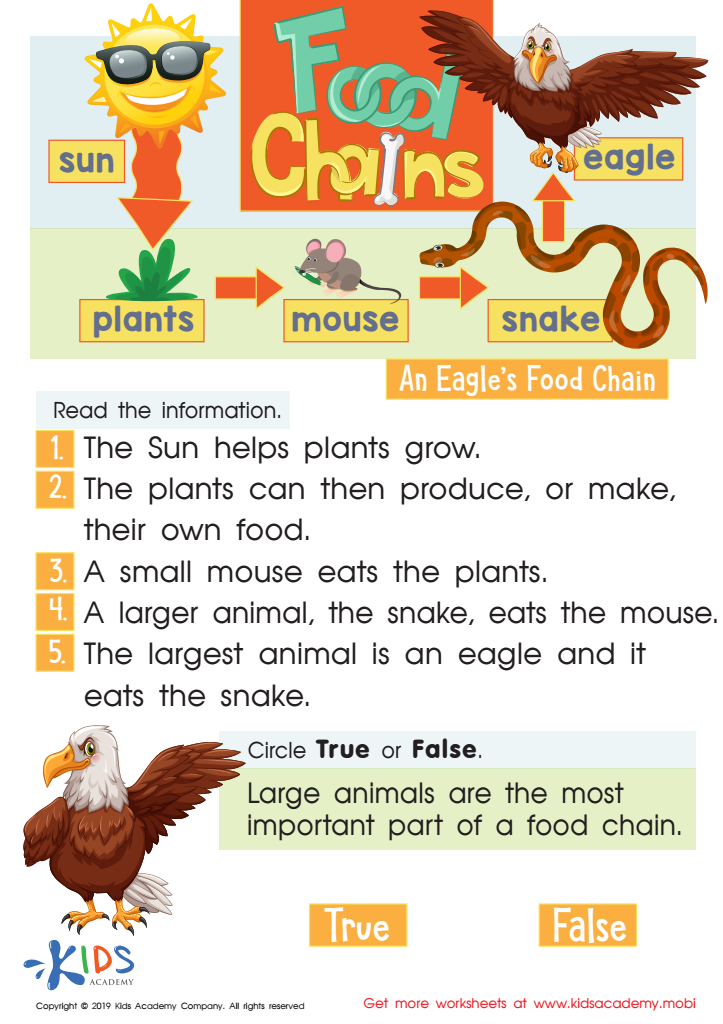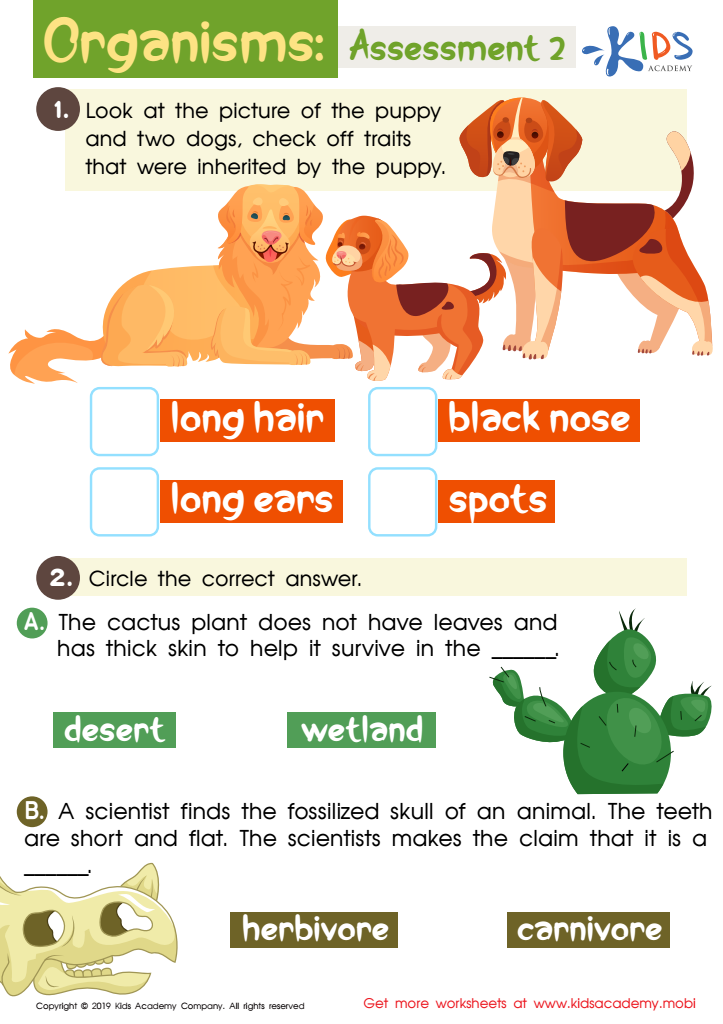Learning about ecosystems Worksheets for Kids
5 filtered results
-
From - To


Pollinator Positions Worksheet


Number Bonds in an Ecosystem Worksheet


The Path of Pollinators Worksheet


Food Chains Worksheet


Organisms: Assessment 2 Worksheet
Question/Answer
Why is the Learning about ecosystems skill important for Grade 2 students?
Learning about ecosystems in Grade 2 helps students understand the interconnectedness of life on Earth, fosters awareness of different living environments, and emphasizes the importance of conservation. It lays the foundation for responsible environmental behavior, critical thinking about ecological issues, and appreciation for biodiversity, preparing them for more complex scientific concepts in future grades.
What are some effective activities to train students’ Learning about ecosystems skill when teaching them about Plants and Animals?
Effective activities for teaching students about ecosystems, focusing on plants and animals, include hands-on experiments like creating terrariums or aquariums, interactive field trips to local natural habitats, engaging in citizen science projects, using online simulation tools to model ecosystem interactions, and organizing classroom debates on conservation topics.
How does the mastery of the Learning about ecosystems skill affect a student's performance at an early age?
Mastery of the Learning about ecosystems skill at an early age positively impacts a student's performance by enhancing their understanding of environmental science, biodiversity, and interdependence among organisms. It fosters critical thinking, problem-solving abilities, and a sense of responsibility towards environmental conservation, which are foundational skills beneficial across various subjects and real-life situations.
 Assign to My Students
Assign to My Students















